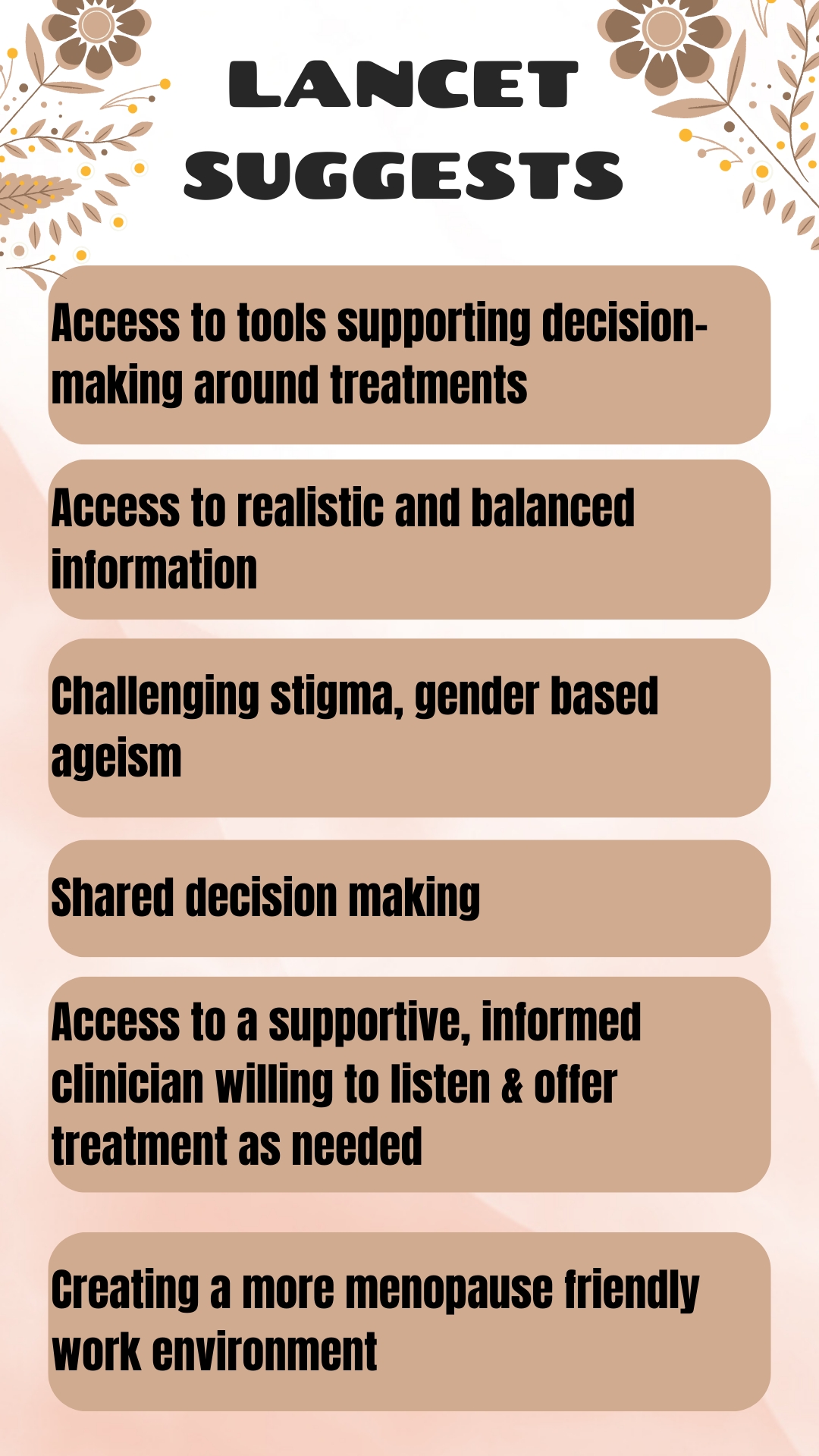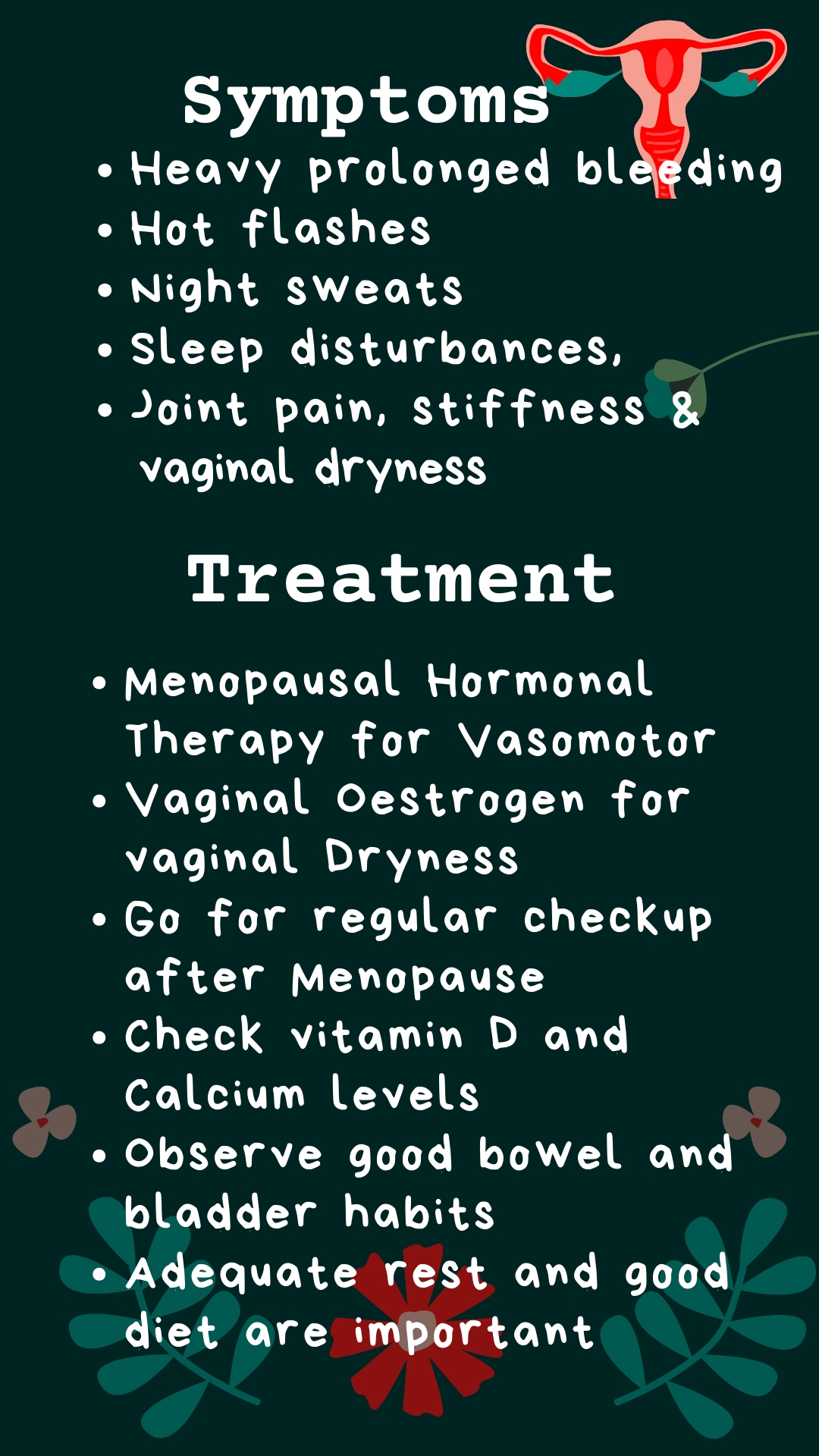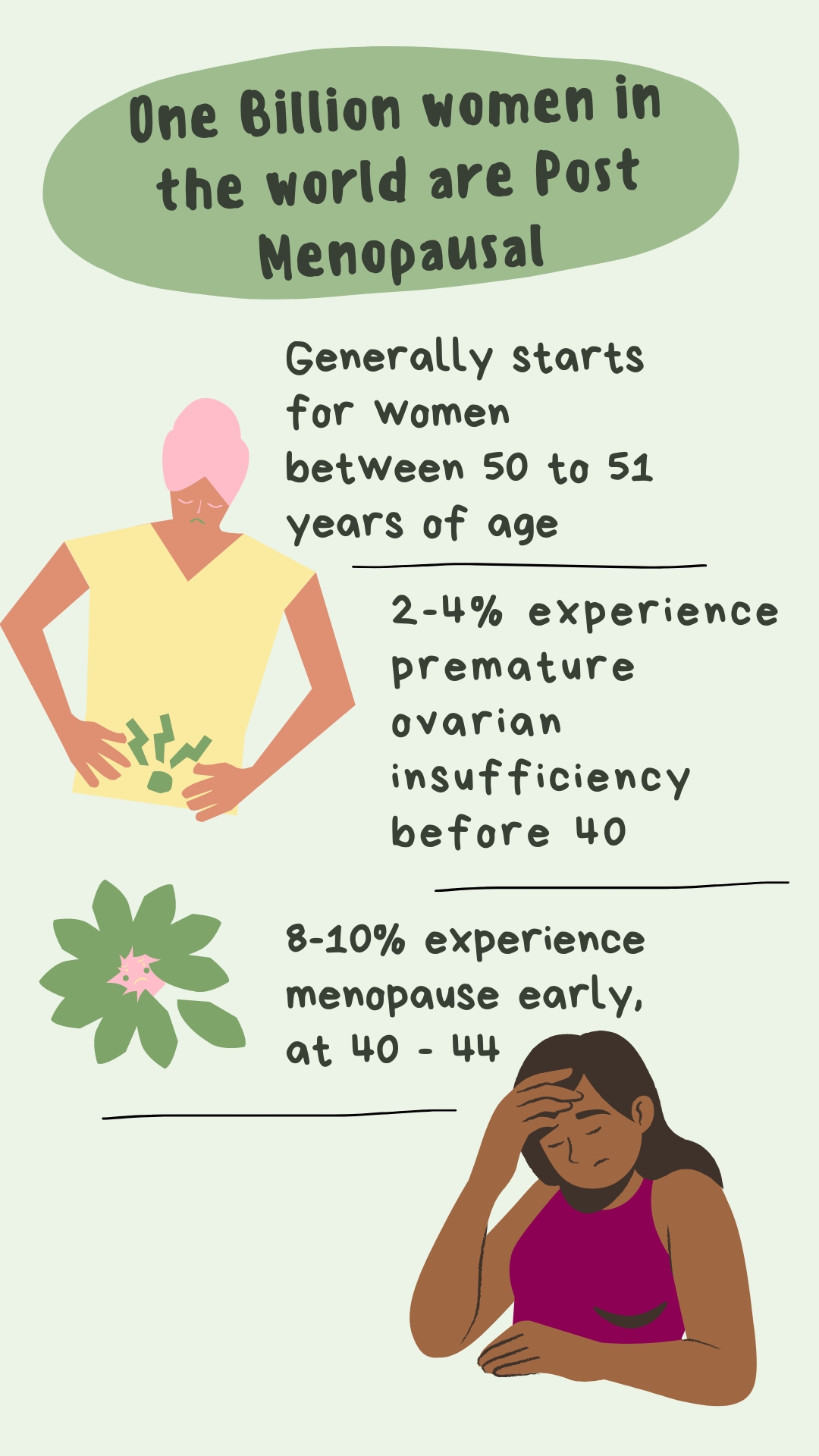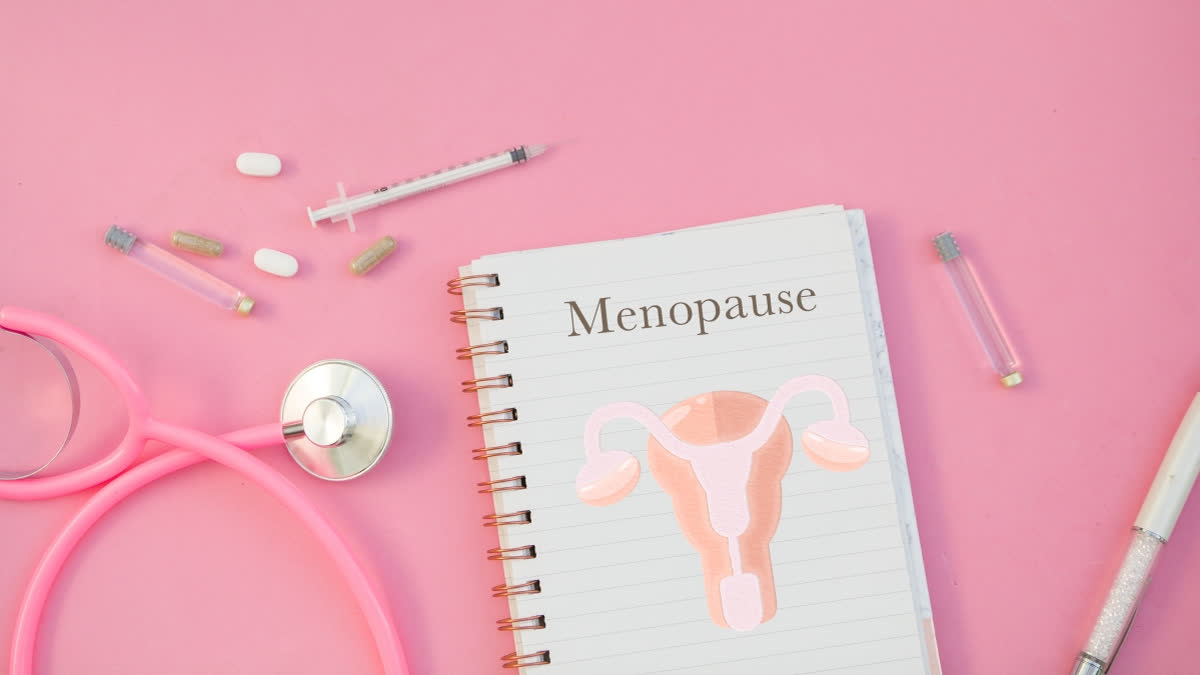New Delhi: There is something called Biological ageing, for women the most natural transition is Menopause. Menopause is the time that Marks end of your menstrual cycle and can be confirmed when you have gone for 12 months without a menstrual period.
This natural transition is part of every woman's life, however, commercial companies and individuals with vested interests have overmedicated menopause, says Lancet in its editorial. The reputed medical journal has highlighted this in a Series of four papers published. Lancet says commercial companies and individuals with vested interests have over-medicalised menopause making the transition complicated.
The framing of this natural period of transition as a disease of estrogen deficiency that can be eased only by replacing the missing hormones fuels negative attitudes to menopause and exacerbates stigma,'' the editorial reads.

As explained in the Series, women's experience of menopause varies hugely and there is no one-size-fits-all approach to management. Many women transition this stage of life uneventfully, whereas some experience prolonged or severe symptoms and need information, support, or medical treatment.
In one of the papers in the series, researchers say factors contributing to the experience can not only be individual factors like the severity of the disease but also psychological, social, and contextual considerations.
According to Lancet, the most common symptoms associated with menopause include vasomotor symptoms such as hot flushes and night sweats, sleep disturbances, vaginal dryness, and muscle and joint pain. Menopause is commonly perceived to be associated with poor mental health.
The journal however says, there is no strong evidence that the risk of first-onset clinical depression is increased over the menopause, although this can be a vulnerable period for recurrence in those with previous clinical depression''. In one of the series papers doctors insist that misattribution of psychological distress and psychiatric distributions to menopause can harm women by delaying accurate diagnosis and initiation of effective treatment.
The editorial also lays emphasis on the judicious use of Menopausal Hormonal Therapy( MHT). While studies show it is the most effective treatment for vasomotor symptoms, but it is not without risk: robust epidemiological evidence suggests that one additional case of breast cancer will occur for every 50 women taking systemic, combined MHT from age 50 years, and one in 70 for estrogen-only MHT''.

While experts insist that all women who request MHT, after weighing up the short-term and long-term benefits and risks with their clinician, should be offered treatment unless they are at risk. However, not every woman needs it. Treatments such as cognitive behavioural therapy can also help to counter vasomotor symptoms and potentially improve mood and sleep''. The editorial insists on the need of easy access to impartial information by clinicians and not rely on the information provided by the manufacturer of the products.
The editorial also stresses on the need for more research on women and health. Increased awareness and advocacy of women's health are crucial to reverse the long-standing gender biases in medicine''. The editorial insists that ``over-medicalisation of menopause and promotion of MHT as a panacea is unhelpful and only serves to divide opinions further''. It calls for a sensible conversation about menopause to enable informed, individualised decision-making on optimal management of this transition''.
Greater diversity in research that addresses priority areas for women is needed. A paucity of information and education on menopause has led to symptoms being dismissed by uninformed health-care professionals and a lack of understanding in the workplace''.
Lancet insists Menopausal women can be strong, healthy, and happy—and highlights the same by the selection of inspirational images of older women that accompany the Series. Lancet says menopause can also be a time for women to reassess their identities and accept the freedom from menstruation and menstrual pain. "We to challenge negative perceptions of older women, which are prevalent in some societies,'' says the editorial.

We need to send a realistic, balanced message to women and to society: menopause does not herald the start of a period of decay and decline but is a developmental life stage that can be negotiated successfully with access to evidence-based information as well as appropriate social and medical support,'' says Lancet.
Doctors who are in active clinical practice agree. Our grandmothers, our mothers and aunts have had Menopause, it's a normal transition of life, and Menopausal Hormonal Therapy (MHT) cannot become a fashion. Every menopausal woman does not require it. Only those who come to clinicians. with symptoms, something that can affect their everyday life would require medical management,'' says Dr Amita Jain, Senior Consultant, Urogynaecology at Medanta Hospital.
MHT is not prophylactic, it cannot be taken as preventive medication. Even when prescribed. The clinicians can prescribe when needed after explaining the long and short-term effects and even side effects to the patients. For a patient, starting therapy needs to be an informed decision,'' she adds.
Read More


